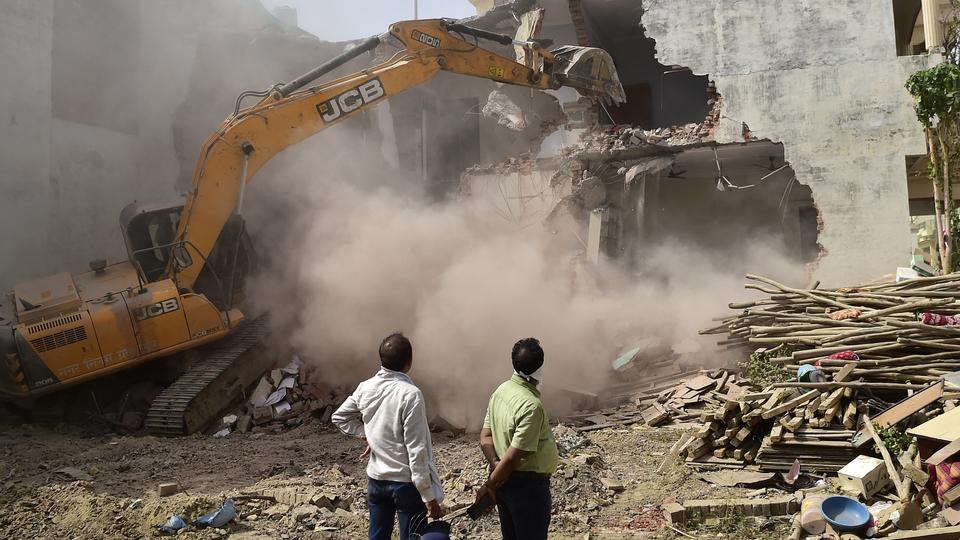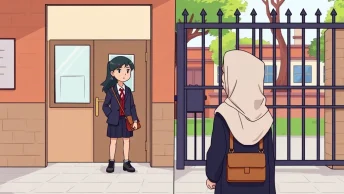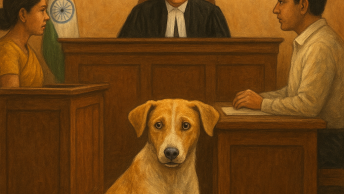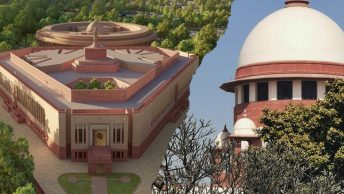On 20 April 2022, the houses, shops and stalls of people in Jahangirpuri, Delhi were demolished, another set of houses and stalls in Khargone, Madhya Pradesh were demolished following the Ram Navami violence and continuing the ‘bulldozing’ spree, the Uttar Pradesh Government recently razed down yet another set of houses. The Universal Declaration of Human Rights declares adequate housing as not only a desired goal but rather a basic human right. However, the recent spree of house demolitions being carried out in different states of India seems to paint a picture of the government intentionally overlooking this human right. It is pertinent to note that the Indian Constitution recognizes the ‘Right to Housing’ as a fundamental right under the ambit of ‘Right to Life and Liberty’ provided under Article 21.
Further, India being a ratifier to the “international bill of human rights” (collective term for UDHR, ICCPR and ICESCR) is further bound by obligations under them which are only strengthened by Article 51 of the Indian Constitution which lays down a moral duty to respect international treaty obligations. While the government continues to justify its stance by stating that such demolitions are being carried out in compliance with laws for ‘illegal construction’, a logical analysis of the modus operandi and the striking similarity in the affected group speaks contrary. In light of the same, this article analyses the incidents of demolition drives and the idea of them serving as a regressive system of collective punishment. It further takes into consideration the idea of right to shelter as an integral part of right to life and vets for the introduction of doctrine of unconstitutional state of affairs. Towards the end, it addresses the concerns surrounding the implementation of the doctrine and its effective usage in the Indian context.
Cloaked Demolition Drive: A Regressive System of Collective Punishment?
The major similarity across all the cases is that the victims were held liable and identified as ‘masterminds’ for violence, protests or damage to public property, post which the municipality sprang into action by declaring their houses to be illegally constructed and within a span of 48 hours their houses were demolished. Another striking feature is the fact that the majority of these houses were owned by people belonging to a particular religion. While supporters of these moves base their claims on the legality of these actions as they were justified under the laws applicable, the critics see these as a blatant violation of principles of natural justice. The court in the Jahangirpuri demolition case held such an act to be an individual state act which was to be scrutinized on the touchstone of compliance with statutory provisions and adherence to constitutional principles. But as pointed out by Gautam Bhatia, a scholar of constitutional law, “As the copycat actions across different states have shown, however, a specific instance of home demolition is not an individualized act, but is part of an evolving pattern of collective punishment by the State”. Looking at the circumstances and the modus operandi, it is evident that there exists more to this issue than what meets the eye.
Right to Life: The International Covenants, Indian Constitution and Judicial Precedents
Whether it be the UDHR (Article 25.1), ICCPR (Article 17) or ICESCR (Article 11.1), the holy trinity of human rights has time and again affirmed and reaffirmed housing as a basic human right. For example, Article 11.1 of ICESCR has reaffirmed Article 25.1 of UDHR by stating, “The States Parties to the present Covenant recognize the right of everyone to an adequate standard of living for himself and his family, including adequate food, clothing and housing, and to the continuous improvement of living conditions.” Along similar lines, The Supreme Court of India, in several judgements aimed at interpreting fundamental rights, has held that the human right to adequate housing is a fundamental right emanating from the right to life protected by Article 21 of the Constitution of India.
It is an accepted fact that the meaning and content of the fundamental rights guaranteed in the Constitution of India are of sufficient amplitude to ensure a fundamental human existence. It needs to be noted here that in case of Visaka v. State of Rajasthan it was held that the in case of existing international conventions and norms to which India is a ratifier, such are to be read into the fundamental rights when there is an absence of enacted domestic law. It is now an accepted rule of judicial construction that regard must be had to international conventions and norms for construing domestic law when there is no inconsistency between them and there is a void in the domestic law. This reasoning supports the idea that as long as the international obligations are not inconsistent with the constitutional scheme, they are to be read into the fundamental rights with an aim to further expand their scope of application.
The international obligations and the jurisprudential development have materialized into various landmark cases which act as precedents in India. In the landmark case of Olga Tellis (1985), the Supreme Court established that the right to livelihood and housing is an integral part of the right to life under Article 21 of the Indian Constitution. Thus, the court recognized two major facets of this right – a right to notice before demolitions/evictions, and access to rehabilitation in such cases. Further, in Sudama Singh Case (2010) the Delhi High Court held that prior to any acts of eviction or demolition, it is the state’s duty to (i) assess the affected persons and check their eligibility under various welfare schemes for rehabilitation, and (ii) to carry out a rehabilitation exercise ‘in consultation with each one of them [persons at risk of an eviction] in a meaningful manner.’ All these cases have had the effect that it has been accepted as a settled principle that the right to adequate housing forms a part of the right to life and liberty enshrined under Article 21 of the Indian Constitution.
Astutya Prakhar is a 4th Year Law Student at National University of Study and Research in Law, Ranchi. He is an avid reader of politics, sociology and public policy.His areas of interests are Corporate Finance Law and Securities Law.
Raj Shekhar is a 4th Year Law Student at National University of Study and Research in Law, Ranchi. He has deep interests in Constitutional Law and Public Policy. He also works actively to promote Sexual Reporductive and Health Rights of Tribal Women in India and is currently a part of the Millenium Fellowship Class of 2022 (organized by MCN in collaboration with United Nations Academic Impact) where he is working to promote the same.
Edited by Utkarsh Mani Tripathi and published by Suhani Paruvelly.







[…] Posted byAstutya Prakhar and Raj Shekhar […]
[…] Source link […]